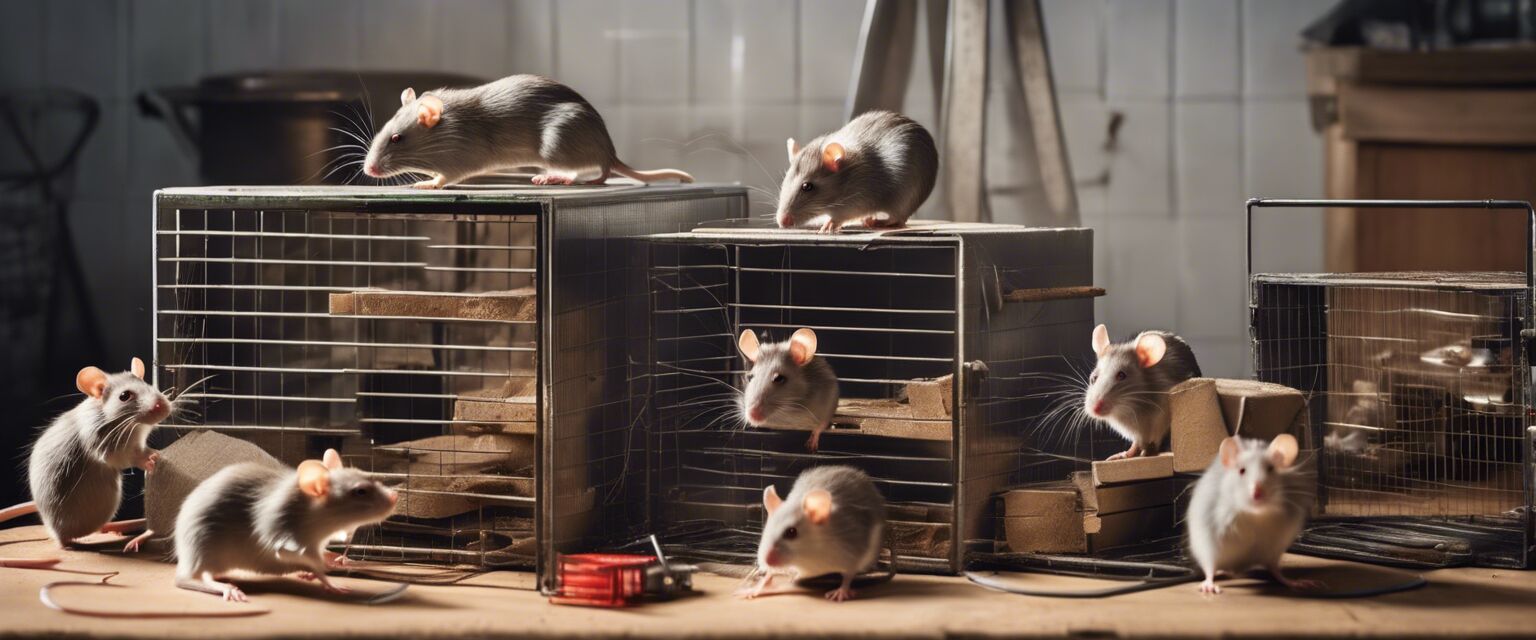
Rodent Problem Prevention
Key Takeaways
- Prevention is better than cure: taking proactive measures can save time and money.
- Seal entry points: rodents can squeeze through small openings, so effective sealing is crucial.
- Proper sanitation: keep food stored safely and dispose of trash regularly.
- Utilize traps and repellents: use humane traps or rodent repellents to deter infestations.
- Regular inspections: routinely check your property for signs of rodents and take immediate action if needed.
Rodents are not just a nuisance; they can cause damage to properties and pose health risks. The key to effective rodent problem prevention lies in identifying possible entry points, maintaining a clean environment, and utilizing traps or repellents when necessary. This guide will explore essential strategies for keeping your home rodent-free.
Understanding Rodent Behavior
Rodents, such as rats and mice, are notorious for their adaptability and resourcefulness. They thrive in environments that offer food, shelter, and warmth. Understanding their behavior can significantly inform your prevention strategies.
- Foraging habits: Rodents are opportunistic feeders, often scavenging for food in kitchens and pantries.
- Nesting preferences: They prefer building nests in concealed areas, often using insulation, paper, and other soft materials.
- Activity patterns: Rodents are most active during the night, which can make detection challenging.
Sealing Entry Points
One of the most critical steps in preventing rodent infestations is ensuring that all potential entry points are sealed. Remember, rodents can squeeze through openings as small as a quarter. Here are effective methods to seal your home:
| Method | Description |
|---|---|
| Patching holes | Use steel wool or caulk to seal gaps in walls, around pipes, and in foundations. |
| Door sweeps | Install door sweeps to eliminate gaps at the bottom of doors. |
| Window screens | Use fine-mesh screens to cover vents and windows that can be opened. |

Maintaining Proper Sanitation
Keeping your surroundings clean is vital in rodent problem prevention. Here are some best practices:
- Store food in airtight containers to prevent attracting rodents.
- Clean up spills and crumbs immediately.
- Dispose of garbage regularly and use bins with tight seals.
- Limit clutter in basements and attics where rodents might nest.
Using Traps and Repellents
Deploying the right traps and repellents is a proactive way to deter rodents. Consider these options:
- Humane rat traps: These traps capture rodents without harming them.
- Mechanical traps: Simple yet effective for rodent control.
- Rodent repellents: Natural and chemical options can deter rodents effectively.

Regular Inspections
Conducting routine inspections is essential for catching rodent problems before they escalate. Hereâs what to look for:
- Droppings: Finding rodent droppings is a clear indication of their presence.
- Nest materials: Look out for nesting materials like shredded paper or fabric.
- Gnaw marks: Inspect structural wood and stored goods for gnawing.
Tips for Beginners
- Start with one room: Focus on preventing rodent infestations in one area before moving to others.
- Get the family involved: Educate everyone on maintaining cleanliness and detecting potential issues.
- Be persistent: Regularly check for problems; prevention is an ongoing effort!
Pros
- Cost-effective: Preventing infestations is cheaper than dealing with a full-blown infestation.
- Promotes health: Reducing rodent presence lowers health risks associated with diseases.
- Peace of mind: Knowing your home is secure from rodents allows for stress-free living.
Cons
- Time-consuming: Regular maintenance takes commitment and time.
- Initial costs: Spending on sealing supplies and traps might strain your budget initially.
- Requires regular effort: Ongoing inspections and cleaning are necessary to ensure success.
Conclusion
Preventing rodent infestations is a proactive and effective strategy that requires dedication and consistent effort. By sealing entry points, maintaining cleanliness, using traps and repellents strategically, and conducting regular inspections, you can significantly reduce the likelihood of rodents invading your home.
For more information, you can explore our categories on bait stations, rat poisons, and rodent-proofing products to find suitable solutions that fit your needs.

